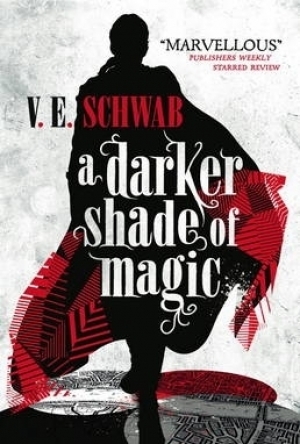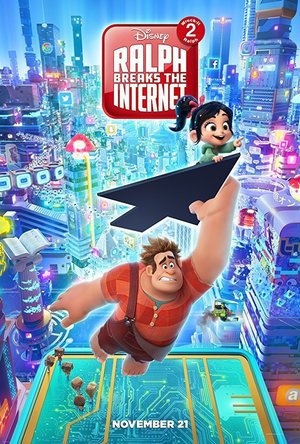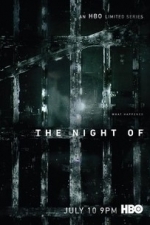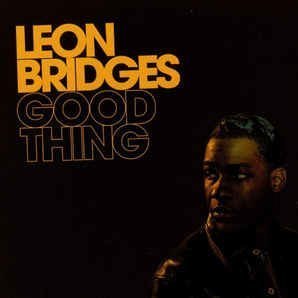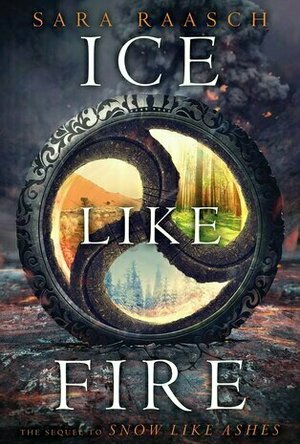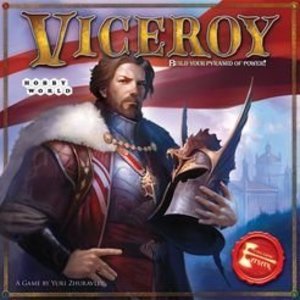Search
Search results
Kate Seger (9 KP) rated A Darker Shade of Magic in Books
Dec 22, 2019
Super engaging and well rounded characters (2 more)
Great world building
Crisp readable writing
WONDERFUL Fantasy book!
Gotta recommend this one! It was SO GOOD. The writing is clean and addictive, the characters are unique and engaging, the magic is... well... magically magical and unlike most of the generic magic floating around out there.
A cross-dressing pick pocket pirate, a promiscuous prince, a moody magician with a forgotten past,
a pair of twin villains who make the Lannister twins look like snowflakes, and a vicious blood-enslaved magician. How's that for a cast? Side note -- even the bit players in this book are well drawn and stir emotions when they die. Yes. People actually die in this one...I've read several books lately where SOMEONE obviously should have died SOMEWHERE along the journey and no one did. I was SO ready for some "let's get real and kill people so the stakes are high" reading.
Four different versions of London exist on different planes... each magical in varying degrees, all in danger of destruction from a magical artifact that accidentally smuggled between the veils. This is the scene for the grand adventure.
I was really struggling to get over my book hangover after finishing Queen of Nothing and this was like the nectar that healed me. I can't wait to dive into book 2!
Also, Kell is my new fictitious boyfriend. Move over Rhysand from ACOTAR, we're starting a reverse harem.
A cross-dressing pick pocket pirate, a promiscuous prince, a moody magician with a forgotten past,
a pair of twin villains who make the Lannister twins look like snowflakes, and a vicious blood-enslaved magician. How's that for a cast? Side note -- even the bit players in this book are well drawn and stir emotions when they die. Yes. People actually die in this one...I've read several books lately where SOMEONE obviously should have died SOMEWHERE along the journey and no one did. I was SO ready for some "let's get real and kill people so the stakes are high" reading.
Four different versions of London exist on different planes... each magical in varying degrees, all in danger of destruction from a magical artifact that accidentally smuggled between the veils. This is the scene for the grand adventure.
I was really struggling to get over my book hangover after finishing Queen of Nothing and this was like the nectar that healed me. I can't wait to dive into book 2!
Also, Kell is my new fictitious boyfriend. Move over Rhysand from ACOTAR, we're starting a reverse harem.
BankofMarquis (1832 KP) rated Ralph Breaks the Internet: Wreck-It Ralph 2 (2018) in Movies
Dec 1, 2018
Come for Ralph and Vanelope, stay for the Disney Princesses
I'm pretty sure that this is going to be the only review of WRECK-IT RALPH 2: RALPH BREAKS THE INTERNET that will draw a comparison between Ralph2 and DEADPOOL 2.
Like, DP2, Ralph2 suffers in the first 1/2 hour of the film with an issue - it tries too hard to repeat what was successful in the first film. I spent the first portion of both films thinking "you did this - better - in the first film". But, like DP2, Ralph2 finds it's footing - and it's own voice - after a fashion and becomes a very entertaining film.
And you can thank the Disney Princesses for that.
Without giving too much away, the plot of Ralph2 has Wreck-it Ralph (John C. Reilly) and Vanelope (Sarah Silverman) heading to the Internet (notably E:BAY) to find a replacement part for her game. The main theme of this film is "finding the place where you belong" and along this journey Vanelope enters in the world of Disney and encounters all of the Disney Princesses backstage.
Kudos to The Walt Disney Company - and Disney Animation Studios - for having a sense of humor and poking fun at themselves. These versions of the princesses are funny and don't take themselves too seriously, by taking themselves very seriously (if that makes any sense) - every character acts (and reacts) ways that make sense. It's a tribute to this extended bit that EVERY original voice of these characters (at least the ones that are still alive) agreed to contribute their voice talents to this bit. The funniest bit was the way Disney Animation handled the character of Princess Merida from BRAVE - a Pixar film.
As for the film proper - it is fine enough. John C. Reilly (as Ralph) and Sarah Silverman (as Vanelope) reprise their roles and they are winning enough to hold our attention throughout (though Ralph is sidelined for long stretches as this is really Vanelope's story). Jacks McBrayer's Fix-It Felix is back (for small bits in the beginning and end) as is the great Jane Lynch's Calhoun character. I get that these 2 characters are not really in service to the story - and I applaud the filmmakers for not trying to shoehorn them in - but I can't believe ANY conversation that starts "We have Jane Lynch, so we're going to push her in the background and use very little of her."
As for the other voice cast, Alan Tudyk (the voice of the King Candy in the first Wreck-It Ralph) is back as the voice of an overly-aggressive search engine. Tudyk is this generation's "Man of a Thousand Voices" and I had no idea it was him until the credits, which was fun (for me). Joining the fun this time around - and acquitting herself quite well - is Gal Gadot as an on-line game Race Car Drive that becomes Big Sister/mentor to Vanelope.
One final mention, there are 2 credits scene. The first one is fun enough (and is a callback to the first film), but the 2nd one (at the very end of the credits) had me chuckling - and I was glad I stayed for it.
Come for Ralph and Vanelope, stay for the Disney Princesses. You'll be glad you did.
Letter Grade: B+
7 1/2 (out of 10) stars and you can take that to the Bank(ofMarquis)
Like, DP2, Ralph2 suffers in the first 1/2 hour of the film with an issue - it tries too hard to repeat what was successful in the first film. I spent the first portion of both films thinking "you did this - better - in the first film". But, like DP2, Ralph2 finds it's footing - and it's own voice - after a fashion and becomes a very entertaining film.
And you can thank the Disney Princesses for that.
Without giving too much away, the plot of Ralph2 has Wreck-it Ralph (John C. Reilly) and Vanelope (Sarah Silverman) heading to the Internet (notably E:BAY) to find a replacement part for her game. The main theme of this film is "finding the place where you belong" and along this journey Vanelope enters in the world of Disney and encounters all of the Disney Princesses backstage.
Kudos to The Walt Disney Company - and Disney Animation Studios - for having a sense of humor and poking fun at themselves. These versions of the princesses are funny and don't take themselves too seriously, by taking themselves very seriously (if that makes any sense) - every character acts (and reacts) ways that make sense. It's a tribute to this extended bit that EVERY original voice of these characters (at least the ones that are still alive) agreed to contribute their voice talents to this bit. The funniest bit was the way Disney Animation handled the character of Princess Merida from BRAVE - a Pixar film.
As for the film proper - it is fine enough. John C. Reilly (as Ralph) and Sarah Silverman (as Vanelope) reprise their roles and they are winning enough to hold our attention throughout (though Ralph is sidelined for long stretches as this is really Vanelope's story). Jacks McBrayer's Fix-It Felix is back (for small bits in the beginning and end) as is the great Jane Lynch's Calhoun character. I get that these 2 characters are not really in service to the story - and I applaud the filmmakers for not trying to shoehorn them in - but I can't believe ANY conversation that starts "We have Jane Lynch, so we're going to push her in the background and use very little of her."
As for the other voice cast, Alan Tudyk (the voice of the King Candy in the first Wreck-It Ralph) is back as the voice of an overly-aggressive search engine. Tudyk is this generation's "Man of a Thousand Voices" and I had no idea it was him until the credits, which was fun (for me). Joining the fun this time around - and acquitting herself quite well - is Gal Gadot as an on-line game Race Car Drive that becomes Big Sister/mentor to Vanelope.
One final mention, there are 2 credits scene. The first one is fun enough (and is a callback to the first film), but the 2nd one (at the very end of the credits) had me chuckling - and I was glad I stayed for it.
Come for Ralph and Vanelope, stay for the Disney Princesses. You'll be glad you did.
Letter Grade: B+
7 1/2 (out of 10) stars and you can take that to the Bank(ofMarquis)
Daniel Boyd (1066 KP) rated The Night Of - Season 1 in TV
Jul 19, 2017
Fantastic performances by the entire cast (4 more)
Phenomenal Script
Beautiful cinematography
Clever use of lighting
Brillaint direction
A Masterpice of Storytelling.
The Night Of stars Riz Ahmed as Naz, a young guy from Manhattan from an Asian family, who makes a series of bad decisions on what was supposed to be a simple night out; leading to his subsequent arrest and trial for the murder of a young girl. While there is no denying that Naz made some bad decisions and it is hard to deny he looks guilty, we are on this guy’s side at the start of the series. Then Jon Turturro comes into the show as Naz’s lawer John Stone. This is Turturro’s best role in years, possibly in his entire career and it serves as a stark reminder how wasted this guy is in the Transformers series and Adam Sandler Movies. Both leads give convincing performances as their respective characters, thrust into a situation that ends up being way out of their depth, they are both fish out of water, on either side of the justice system and we see the adapt or die method used by each of them.
Preacher, Westworld and Stranger Things are widely considered to be the best new TV shows of 2016, but I reckon that The Night Of is probably the most important new show broadcast this year. In the wake of a plethora of horrific, recent terror attacks across the world and following the vote to elect Donald Trump as the president of the most powerful country in the world, (a man who once expressed the desire to ban all Muslims from entering the USA,) this show seems unfortunately more relevant than ever. The show doesn’t shove any explicit propaganda down your throat, but there is no denying the racist undertones present and the social issues that the show presents to us. The writing is also fantastic throughout and this is by far the most painfully realistic show I have seen in the last few years. The show isn’t without its quirks though, but the consistently realistic nature of the writing and the performances are what make this show so immersive. The series also takes the viewer on a journey of discovery, constantly dropping unexpected character twists and new hints towards what really happened on the night referred to in the show’s title. This show throws so many interesting conversation starters into the viewership’s collective mind and constantly keeps you guessing as a spectator to these gruesome events.
This is a show that everyone should try, in a post brexit world where racial tensions are at an extreme high, this show is painfully relevant to people on either side of the argument. The crime itself becomes a background element as we see the biased treatment of a young Muslim man by the system and the assumptions made for and against him. There are so many backdoor deals being made between lawyers and other law officials and really the worst light is thrown on the criminal justice system itself and how broken the whole thing is. By halfway through the series’ 8 episodes, the issue of whether or not Naz actually committed the crime is irrelevant, the most important thing at this point being trying to keep everybody involved with this high profile case happy.
Although the moral points that this show chooses to pursue are unflinching and extremely well handled, the more technical aspects of the show are also expertly executed. I have already spoke about Riz Ahmed and John Turturro’s stand out performances, but the show’s supporting cast doesn’t contain any weak spots either and features a well rounded variety of races, ages and social classes. Naz’s family are all brilliant as are the other lawyers that make up the case. I have also already spoke about the high quality script present in the show, but I feel that the show’s writing team can’t be praised enough for the consistently high quality script they have produced. The cinematography of the show is also impressive throughout, with each shot perfectly complimenting the tone that the show sets and framing the actor’s performances masterfully. The use of light is also well implemented and adds to each shot composition and the overall aesthetic of the show. As highlighted above the actor’s performances are fantastic, but they are guided very well by the show’s directors. The score is also a nice addition to the tone of the show, as are all of the sound effects and audio used throughout.
Overall, this is the definition of great television and is the example that all other TV shows should aim for. Even if you don’t agree with the moral compasses of the show’s characters, it is objectively impossible to deny the show’s high caliber of technical filmaking. This is without a doubt one of the best shows aired in 2016 and could even be considered as one of the best seasons of a TV show of the last decade.
Preacher, Westworld and Stranger Things are widely considered to be the best new TV shows of 2016, but I reckon that The Night Of is probably the most important new show broadcast this year. In the wake of a plethora of horrific, recent terror attacks across the world and following the vote to elect Donald Trump as the president of the most powerful country in the world, (a man who once expressed the desire to ban all Muslims from entering the USA,) this show seems unfortunately more relevant than ever. The show doesn’t shove any explicit propaganda down your throat, but there is no denying the racist undertones present and the social issues that the show presents to us. The writing is also fantastic throughout and this is by far the most painfully realistic show I have seen in the last few years. The show isn’t without its quirks though, but the consistently realistic nature of the writing and the performances are what make this show so immersive. The series also takes the viewer on a journey of discovery, constantly dropping unexpected character twists and new hints towards what really happened on the night referred to in the show’s title. This show throws so many interesting conversation starters into the viewership’s collective mind and constantly keeps you guessing as a spectator to these gruesome events.
This is a show that everyone should try, in a post brexit world where racial tensions are at an extreme high, this show is painfully relevant to people on either side of the argument. The crime itself becomes a background element as we see the biased treatment of a young Muslim man by the system and the assumptions made for and against him. There are so many backdoor deals being made between lawyers and other law officials and really the worst light is thrown on the criminal justice system itself and how broken the whole thing is. By halfway through the series’ 8 episodes, the issue of whether or not Naz actually committed the crime is irrelevant, the most important thing at this point being trying to keep everybody involved with this high profile case happy.
Although the moral points that this show chooses to pursue are unflinching and extremely well handled, the more technical aspects of the show are also expertly executed. I have already spoke about Riz Ahmed and John Turturro’s stand out performances, but the show’s supporting cast doesn’t contain any weak spots either and features a well rounded variety of races, ages and social classes. Naz’s family are all brilliant as are the other lawyers that make up the case. I have also already spoke about the high quality script present in the show, but I feel that the show’s writing team can’t be praised enough for the consistently high quality script they have produced. The cinematography of the show is also impressive throughout, with each shot perfectly complimenting the tone that the show sets and framing the actor’s performances masterfully. The use of light is also well implemented and adds to each shot composition and the overall aesthetic of the show. As highlighted above the actor’s performances are fantastic, but they are guided very well by the show’s directors. The score is also a nice addition to the tone of the show, as are all of the sound effects and audio used throughout.
Overall, this is the definition of great television and is the example that all other TV shows should aim for. Even if you don’t agree with the moral compasses of the show’s characters, it is objectively impossible to deny the show’s high caliber of technical filmaking. This is without a doubt one of the best shows aired in 2016 and could even be considered as one of the best seasons of a TV show of the last decade.
Bong Mines Entertainment (15 KP) rated Good Thing by Leon Bridges in Music
Jun 7, 2019
Leon Bridges is a talented R&B/soul singer outta Fort Worth, Texas. Not too long ago, he released his second studio album, entitled, “Good Thing”.
BET AIN’T WORTH THE HAND
The artist sings a beautiful ballad about leaving a rocky relationship. He doesn’t want to leave because he still sees hope in making it work.
The Natalie Rae-directed video begins with Bridges walking the street. He’s hurt. The following scenes show him relating to other people going through the same emotional pain he’s experiencing.
The artist knows that’s a risky move staying in a broken relationship. Also, he looks at the cards he’s dealt with and realizes his best is to move on.
BAD BAD NEWS
The artist switches speed and takes listeners on a funky ride. It’s disco time and he celebrates on the dancefloor. Also, being there isn’t easy. So, he has to fight his way through the crowd to make it to the front.
The Natalie Rae-directed video begins with a voluptuous woman walking inside a train station. She hears someone whistling so she heads in that direction, following the whistler.
Somehow, Bridges’ music overtakes her soul and she begins to follow its funky rhythm. In the end, it leads her to the guy who was whistling in the beginning.
The artist sings a triumphant song. He questions people trying to hold him in the back. But that’s not where he belongs. So, he moves up front and kills them with style and grace.
SHY
The artist addresses a shy woman that he’s in love with. Also, he assures her that it doesn’t matter if she’s shy. He doesn’t care about her shyness because he’s into her.
BEYOND
Bridges is deep in love with the shy woman. Everything is moving fast. Also, he wants to slow things down but he can’t. Because of that, he’s scared to death that she might be the one.
FORGIVE YOU
The artist sings the blues. He admits he played the fool in the relationship where his girl took advantage of his kindness. But he forgives her even though it’s hard to. Also, his friends warned him not to be so gullible.
LIONS
The aftermath of experiencing bad love has Bridges feeling like a thirsty lion. But through his trials and tribulations, he remains true to himself. Also, he refuses to conform to who the woman wants him to be.
IF IT FEELS GOOD (THEN IT MUST BE)
The artist removes the bad love aura and freshens the air with truth and honesty. Also, he perfumes the dancefloor with a splash of funkiness and rhythm and blues.
He wants the mysterious lady bad. So, he tells her to let her guards down and enjoy herself. He doesn’t want her to act so seriously.
YOU DON’T KNOW
The artist continues dancing in the name of love. He’s head over heels for the woman in his life and he wants the world to know that. Also, he wants her to stop thinking because their loving might not go down if she continues to do so.
MRS.
The artist addresses his love and hate relationship with his girl. When they’re good they’re good, but when they’re bad they’re really bad. Also, whenever she shows him affection, he remembers that she still loves him.
GEORGIA TO TEXAS
The artist sings about his mother carrying him in her womb, while his father drove them from Atlanta to Texas. But years later, he admits that adapting to his surrounding wasn’t easy.
Apparently, the 504 black girl is Bridges’ mother, Lisa Sawyer. The number 504 is the area code where she’s from in New Orleans, Lousiana.
CONCLUSION
Leon Bridges’ “Good Thing” is a classic album perfumed with soul ballads, spicy topics, and danceable tunes. Its soulful sound is the perfect soundtrack for those who have loved and lost, and those who are in love for the very first time. It’s romantic, celebratory, with lush experiences. Also, it takes listeners on an emotional journey through the hills and valleys where love dwells.
https://www.bongminesentertainment.com/leon-bridges-good-thing/
BET AIN’T WORTH THE HAND
The artist sings a beautiful ballad about leaving a rocky relationship. He doesn’t want to leave because he still sees hope in making it work.
The Natalie Rae-directed video begins with Bridges walking the street. He’s hurt. The following scenes show him relating to other people going through the same emotional pain he’s experiencing.
The artist knows that’s a risky move staying in a broken relationship. Also, he looks at the cards he’s dealt with and realizes his best is to move on.
BAD BAD NEWS
The artist switches speed and takes listeners on a funky ride. It’s disco time and he celebrates on the dancefloor. Also, being there isn’t easy. So, he has to fight his way through the crowd to make it to the front.
The Natalie Rae-directed video begins with a voluptuous woman walking inside a train station. She hears someone whistling so she heads in that direction, following the whistler.
Somehow, Bridges’ music overtakes her soul and she begins to follow its funky rhythm. In the end, it leads her to the guy who was whistling in the beginning.
The artist sings a triumphant song. He questions people trying to hold him in the back. But that’s not where he belongs. So, he moves up front and kills them with style and grace.
SHY
The artist addresses a shy woman that he’s in love with. Also, he assures her that it doesn’t matter if she’s shy. He doesn’t care about her shyness because he’s into her.
BEYOND
Bridges is deep in love with the shy woman. Everything is moving fast. Also, he wants to slow things down but he can’t. Because of that, he’s scared to death that she might be the one.
FORGIVE YOU
The artist sings the blues. He admits he played the fool in the relationship where his girl took advantage of his kindness. But he forgives her even though it’s hard to. Also, his friends warned him not to be so gullible.
LIONS
The aftermath of experiencing bad love has Bridges feeling like a thirsty lion. But through his trials and tribulations, he remains true to himself. Also, he refuses to conform to who the woman wants him to be.
IF IT FEELS GOOD (THEN IT MUST BE)
The artist removes the bad love aura and freshens the air with truth and honesty. Also, he perfumes the dancefloor with a splash of funkiness and rhythm and blues.
He wants the mysterious lady bad. So, he tells her to let her guards down and enjoy herself. He doesn’t want her to act so seriously.
YOU DON’T KNOW
The artist continues dancing in the name of love. He’s head over heels for the woman in his life and he wants the world to know that. Also, he wants her to stop thinking because their loving might not go down if she continues to do so.
MRS.
The artist addresses his love and hate relationship with his girl. When they’re good they’re good, but when they’re bad they’re really bad. Also, whenever she shows him affection, he remembers that she still loves him.
GEORGIA TO TEXAS
The artist sings about his mother carrying him in her womb, while his father drove them from Atlanta to Texas. But years later, he admits that adapting to his surrounding wasn’t easy.
Apparently, the 504 black girl is Bridges’ mother, Lisa Sawyer. The number 504 is the area code where she’s from in New Orleans, Lousiana.
CONCLUSION
Leon Bridges’ “Good Thing” is a classic album perfumed with soul ballads, spicy topics, and danceable tunes. Its soulful sound is the perfect soundtrack for those who have loved and lost, and those who are in love for the very first time. It’s romantic, celebratory, with lush experiences. Also, it takes listeners on an emotional journey through the hills and valleys where love dwells.
https://www.bongminesentertainment.com/leon-bridges-good-thing/
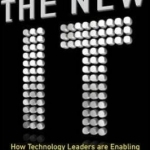
The New it: How Technology Leaders are Enabling Business Strategy in the Digital Age
Book
Introducing a Powerful New Business Model for Today's IT Blogger, speaker, software executive, and...

Python Data Mining Cookbook
Book
Over 100 recipes to help you discover patterns in data with Python 3.x About This Book * Rich...
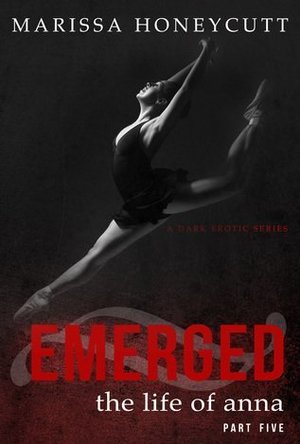
Emerged (The Life of Anna #5)
Book
Anna has escaped from Devin. Now she must learn what it is to live without a master. Yet Devin will...
Sophia (Bookwyrming Thoughts) (530 KP) rated Ice Like Fire (Snow Like Ashes, #2) in Books
Jan 23, 2020
I don't know what to say about this one. (Aside from the fact the author is just another evil writing spawn...)
Anyways. Let's get this up and out of the way: I enjoyed <i><a title="Snow Like Ashes review" href="http://www.bookwyrmingthoughts.com/2015/04/review-snow-like-ashes-by-sara-raasch.html"; target="_blank" rel="noopener tag">Snow Like Ashes</a></i> much much better than <i>Ice Like Fire</i>. In fact, it would have been <i>great</i> as a stand alone novel as well, aside from the fact it would be an open-ended ending that would probably just demand a series in the end.
<i>Ice Like Fire</i> is basically a reconstruction phrase for the Winterians, who are recovering from the harsh conditions of their work camps in Spring (or maybe another kingdom). Under Cordell's orders (and because Winter is in debt to the kingdom for their assistance in getting rid of Angra), the Winterians are mining and searching for the origins of the conduits, and the source of powerful magic. When they find the magic chasm, everyone has different viewpoints: Theron wants to open the chasm and unite the world, Meira wants to keep the chasm closed and answers, and Mather just wants the Winterians to be free.
And to hopefully accomplish all of that and gain allies, Meira and Theron set off on a journey to the other kingdoms, primarily Summer, Yakim, and Ventralli. If you ask me, nothing terribly action packed is going on in this sequel unless visiting kingdoms and seeing their traditions in action is considered "action."
But let's talk about this love triangle established from <i>Snow Like Ashes</i> and continuing with <i>Ice Like Fire</i>. Mather is compassionate and loyal and quotable, and Theron makes fantastic comments and has big dreams for the kingdoms. Both with good intentions and not exactly considered annoying thus far. I haven't actually made any progress with this love triangle – not when it comes to going with one side or another.
Ultimately, though, stay away from <i>Ice Like Fire</i>. The first book is more enjoyable, but the second book will leave readers wanting closure that won't actually happen until later on this year.
<a href="https://bookwyrmingthoughts.com/chibi-views-touch-jennifer-snyder-ice-like-fire-sara-raasch/"; target="_blank">This review was originally posted on Bookwyrming Thoughts</a>
Anyways. Let's get this up and out of the way: I enjoyed <i><a title="Snow Like Ashes review" href="http://www.bookwyrmingthoughts.com/2015/04/review-snow-like-ashes-by-sara-raasch.html"; target="_blank" rel="noopener tag">Snow Like Ashes</a></i> much much better than <i>Ice Like Fire</i>. In fact, it would have been <i>great</i> as a stand alone novel as well, aside from the fact it would be an open-ended ending that would probably just demand a series in the end.
<i>Ice Like Fire</i> is basically a reconstruction phrase for the Winterians, who are recovering from the harsh conditions of their work camps in Spring (or maybe another kingdom). Under Cordell's orders (and because Winter is in debt to the kingdom for their assistance in getting rid of Angra), the Winterians are mining and searching for the origins of the conduits, and the source of powerful magic. When they find the magic chasm, everyone has different viewpoints: Theron wants to open the chasm and unite the world, Meira wants to keep the chasm closed and answers, and Mather just wants the Winterians to be free.
And to hopefully accomplish all of that and gain allies, Meira and Theron set off on a journey to the other kingdoms, primarily Summer, Yakim, and Ventralli. If you ask me, nothing terribly action packed is going on in this sequel unless visiting kingdoms and seeing their traditions in action is considered "action."
But let's talk about this love triangle established from <i>Snow Like Ashes</i> and continuing with <i>Ice Like Fire</i>. Mather is compassionate and loyal and quotable, and Theron makes fantastic comments and has big dreams for the kingdoms. Both with good intentions and not exactly considered annoying thus far. I haven't actually made any progress with this love triangle – not when it comes to going with one side or another.
Ultimately, though, stay away from <i>Ice Like Fire</i>. The first book is more enjoyable, but the second book will leave readers wanting closure that won't actually happen until later on this year.
<a href="https://bookwyrmingthoughts.com/chibi-views-touch-jennifer-snyder-ice-like-fire-sara-raasch/"; target="_blank">This review was originally posted on Bookwyrming Thoughts</a>
Purple Phoenix Games (2266 KP) rated Viceroy in Tabletop Games
Jun 12, 2019
One of the best parts of the board gaming experience is finding a fun group of people with whom to play! Sometimes, though, coordinating a game night is easier said than done. We all must occasionally forego the group experience and face the world as the Lonely Only. But fear not! The world of solo-play is a vast and exciting realm! What follows is a chronicle of my journey into the solo-playing world – notes on gameplay, mechanics, rules, difficulty, and overall experience with solo variations of commonly multiplayer games! I hope this will provide some insight as you continue to grow your collection, or explore your already owned games!
Power. That’s what everyone wants, isn’t it? Well, at least it is in Viceroy! As an inhabitant of the world of Laar, you are fighting to become the ultimate ruler. Recruit allies who provide strategic advantages and enact laws that solidify your claim for power. Do you have what it takes to build and maintain a powerful kingdom, or will your attempts fall short?
DISCLAIMER: There is an expansion to this game, but we are not reviewing it at this time. Should we review it in the future we will either update this review or post a link to the new material here. -T
Viceroy, a game of card drafting and tile placement, is played over 12 turns in which players build a pyramid with their cards – paying to place each card and collecting rewards based upon which level of the pyramid a card is placed. Each turn is divided into two phases: Auction and Development. During the Auction Phase, players bid gemstones to buy a card from the auction line. Once every player has either collected 1 card from auction or passed, play moves to the Development Phase. During the Development Phase, players can either play a card into their pyramid, pass, or discard a card and take 2 gemstones from the reserve. To play a Law card into your pyramid, you place it for free. To play a Character card into your pyramid, you have to pay for it with gems. The cost is dependent upon which level of the pyramid the card is to be placed. You must pay for the level the card will sit on, as well as pay the cost for every level beneath it. For example, to add a card to the third level of the pyramid, you must pay the cost for the 3rd level, AND 2nd level, AND 1st level. The rewards gained from adding a card to the pyramid, however, are taken only for the level on which the card sits. In the earlier example, you would only get the reward for the third level alone, since that is the level on which the card sits. The Development Phase is played over 3 rounds, so a player could play up to 3 cards into their pyramid during 1 Development Phase. After the 3 rounds are up, the next turn begins again in the Auction Phase. When all cards are gone from the Auction Deck, the game ends. Players count up all of their Power Points, and the player with the highest Power value wins!
The only change in Viceroy between a group and solo game is during the Auction Phase. Obviously, if you are playing solo, there is nobody to bid against for cards. How that is alleviated is that you still bid your gemstone as normal, and you randomly draw an unused gemstone from the box as an AI bid. If the colors match, you lose your gem and go on to the next auction. If the colors do not match, you collect your choice card, and the card the AI would have collected gets discarded. If the AI color does not match an available card, you just discard one of the remaining cards. This mimics group play in the sense that you might not always get the card you want from auction! The Development Phase is played as normal. At the end of the game, count points as normal and try to beat your own high score.
Viceroy is a neat game. Every card has so many options that there is no one single strategy that is a sure-win every time. Maybe one game I’ll go for Magic tokens. And maybe the next I’ll try to go for raw Power Point tokens. The possibilities really are endless, and that keeps this game fresh for me. I don’t feel like I’m just going through the motions because every card will act differently depending on where it is played. Strategy really is everything here. On the flip-side of that, however, is that sometimes the options can be a little overwhelming. With so many possibilities for each card, it can get hard for me to decide on what strategy I really want to use. It should also be noted that a card can only be played onto a level if it can sit on exactly 2 cards on the level beneath it. So sometimes I buy a card to play on a certain level only to get to the Development Phase and realize I don’t have a legal place to which I can play it. So do I sacrifice other cards/gemstones to build a slot for this one card, or do I play it to a different level and change my strategy a bit? There’s a little bit of a learning curve, but the more I play, the better I get (or at least, the better I think I get).
Another grievance with Viceroy is that I find myself running out of cards in my hand a lot. The only opportunity to draw cards is if you play a card into your pyramid that allows you to do so. And since I’m usually focused on other strategic routes, I don’t use those cards for those purposes. So then I play all of the cards in my hand (leaving me empty-handed), get 1 card at the next auction, play it, and am again left with no cards in my hand. To fix this issue, I wish one of the actions you could take during the Development Phase was to draw 1 card. I’m not sure if other people have this issue, or if it’s just me, but it’s a problem I run into almost every game.
Overall, I think Viceroy is a good game. It’s unique in the sense that there are so many possibilities that you’ll probably never play the same game twice, even if you decide to play by the same strategy. The mechanics and gameplay are cool too – it’s fun to watch your pyramid literally grow in front of you as the game progresses. This game takes a little more focus and thought than you might think, so it’s not one I’d necessarily just pull out for some light fun. I think Viceroy is as exciting as a solo game as it is as a group game since there really aren’t any differences between the two settings. If you like Viceroy, give it a try solo! If you’ve never played Viceroy, try it either solo or in a group – it’s the same game after all!
https://purplephoenixgames.wordpress.com/2019/04/18/solo-chronicles-viceroy/
Power. That’s what everyone wants, isn’t it? Well, at least it is in Viceroy! As an inhabitant of the world of Laar, you are fighting to become the ultimate ruler. Recruit allies who provide strategic advantages and enact laws that solidify your claim for power. Do you have what it takes to build and maintain a powerful kingdom, or will your attempts fall short?
DISCLAIMER: There is an expansion to this game, but we are not reviewing it at this time. Should we review it in the future we will either update this review or post a link to the new material here. -T
Viceroy, a game of card drafting and tile placement, is played over 12 turns in which players build a pyramid with their cards – paying to place each card and collecting rewards based upon which level of the pyramid a card is placed. Each turn is divided into two phases: Auction and Development. During the Auction Phase, players bid gemstones to buy a card from the auction line. Once every player has either collected 1 card from auction or passed, play moves to the Development Phase. During the Development Phase, players can either play a card into their pyramid, pass, or discard a card and take 2 gemstones from the reserve. To play a Law card into your pyramid, you place it for free. To play a Character card into your pyramid, you have to pay for it with gems. The cost is dependent upon which level of the pyramid the card is to be placed. You must pay for the level the card will sit on, as well as pay the cost for every level beneath it. For example, to add a card to the third level of the pyramid, you must pay the cost for the 3rd level, AND 2nd level, AND 1st level. The rewards gained from adding a card to the pyramid, however, are taken only for the level on which the card sits. In the earlier example, you would only get the reward for the third level alone, since that is the level on which the card sits. The Development Phase is played over 3 rounds, so a player could play up to 3 cards into their pyramid during 1 Development Phase. After the 3 rounds are up, the next turn begins again in the Auction Phase. When all cards are gone from the Auction Deck, the game ends. Players count up all of their Power Points, and the player with the highest Power value wins!
The only change in Viceroy between a group and solo game is during the Auction Phase. Obviously, if you are playing solo, there is nobody to bid against for cards. How that is alleviated is that you still bid your gemstone as normal, and you randomly draw an unused gemstone from the box as an AI bid. If the colors match, you lose your gem and go on to the next auction. If the colors do not match, you collect your choice card, and the card the AI would have collected gets discarded. If the AI color does not match an available card, you just discard one of the remaining cards. This mimics group play in the sense that you might not always get the card you want from auction! The Development Phase is played as normal. At the end of the game, count points as normal and try to beat your own high score.
Viceroy is a neat game. Every card has so many options that there is no one single strategy that is a sure-win every time. Maybe one game I’ll go for Magic tokens. And maybe the next I’ll try to go for raw Power Point tokens. The possibilities really are endless, and that keeps this game fresh for me. I don’t feel like I’m just going through the motions because every card will act differently depending on where it is played. Strategy really is everything here. On the flip-side of that, however, is that sometimes the options can be a little overwhelming. With so many possibilities for each card, it can get hard for me to decide on what strategy I really want to use. It should also be noted that a card can only be played onto a level if it can sit on exactly 2 cards on the level beneath it. So sometimes I buy a card to play on a certain level only to get to the Development Phase and realize I don’t have a legal place to which I can play it. So do I sacrifice other cards/gemstones to build a slot for this one card, or do I play it to a different level and change my strategy a bit? There’s a little bit of a learning curve, but the more I play, the better I get (or at least, the better I think I get).
Another grievance with Viceroy is that I find myself running out of cards in my hand a lot. The only opportunity to draw cards is if you play a card into your pyramid that allows you to do so. And since I’m usually focused on other strategic routes, I don’t use those cards for those purposes. So then I play all of the cards in my hand (leaving me empty-handed), get 1 card at the next auction, play it, and am again left with no cards in my hand. To fix this issue, I wish one of the actions you could take during the Development Phase was to draw 1 card. I’m not sure if other people have this issue, or if it’s just me, but it’s a problem I run into almost every game.
Overall, I think Viceroy is a good game. It’s unique in the sense that there are so many possibilities that you’ll probably never play the same game twice, even if you decide to play by the same strategy. The mechanics and gameplay are cool too – it’s fun to watch your pyramid literally grow in front of you as the game progresses. This game takes a little more focus and thought than you might think, so it’s not one I’d necessarily just pull out for some light fun. I think Viceroy is as exciting as a solo game as it is as a group game since there really aren’t any differences between the two settings. If you like Viceroy, give it a try solo! If you’ve never played Viceroy, try it either solo or in a group – it’s the same game after all!
https://purplephoenixgames.wordpress.com/2019/04/18/solo-chronicles-viceroy/
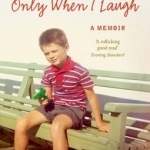
Only When I Laugh: My Autobiography
Book
Known for his intelligent and often surreal humour, Paul Merton's weekly appearances on BBC1's Have...
